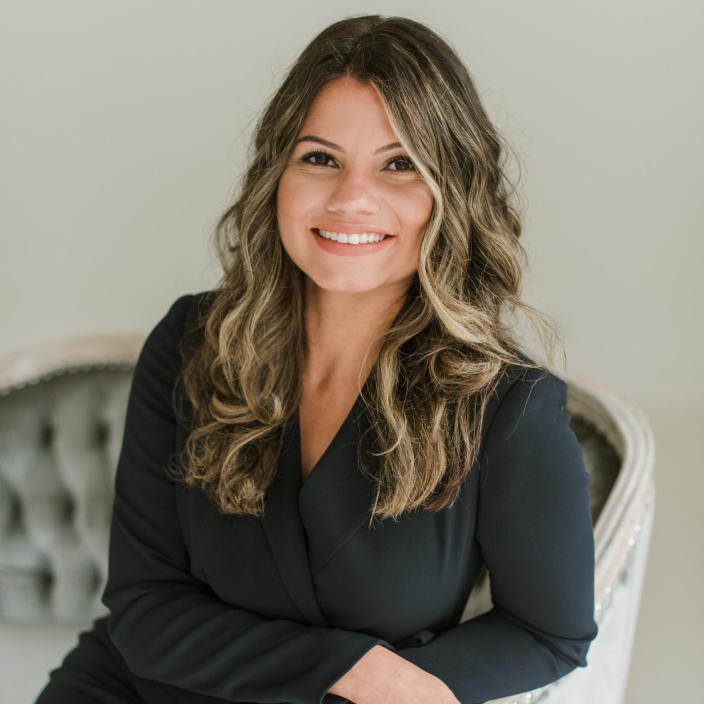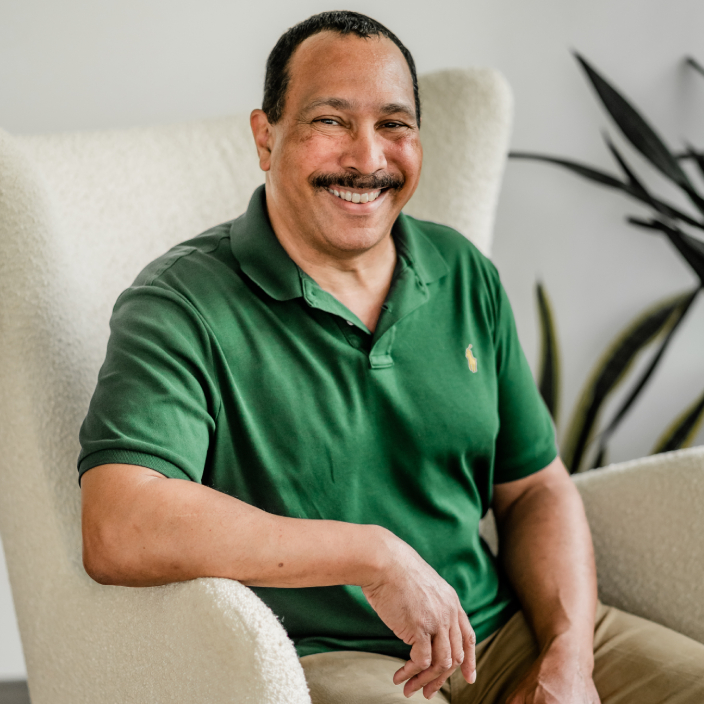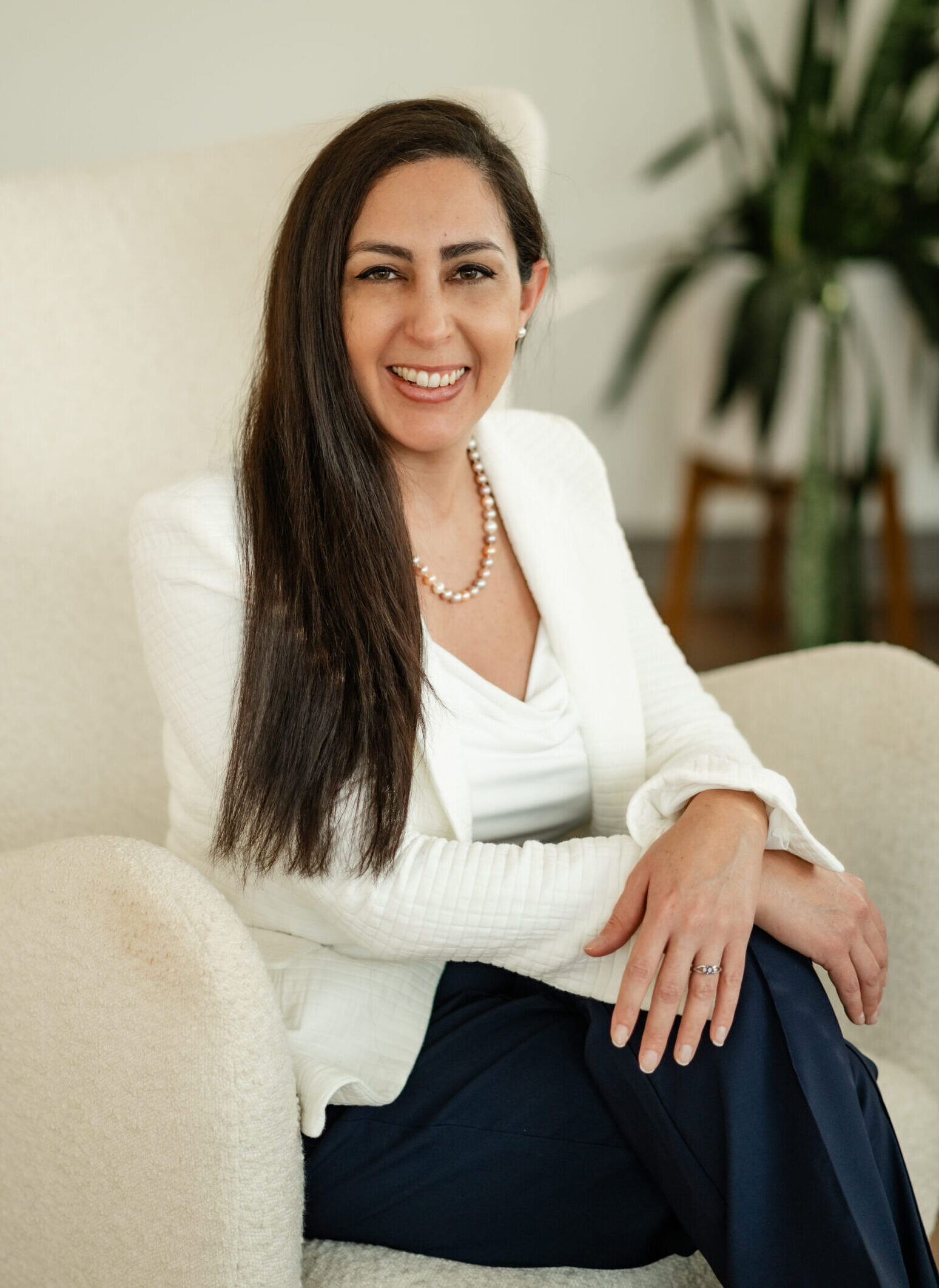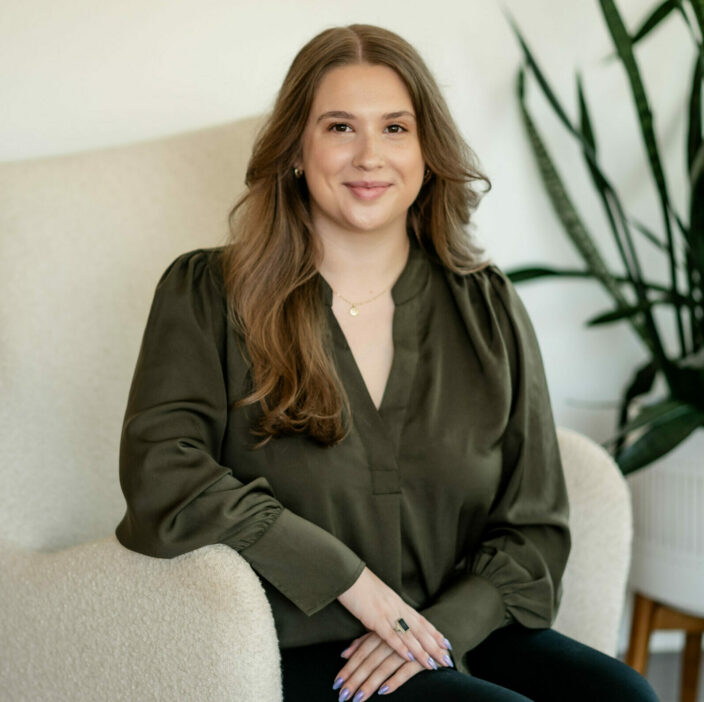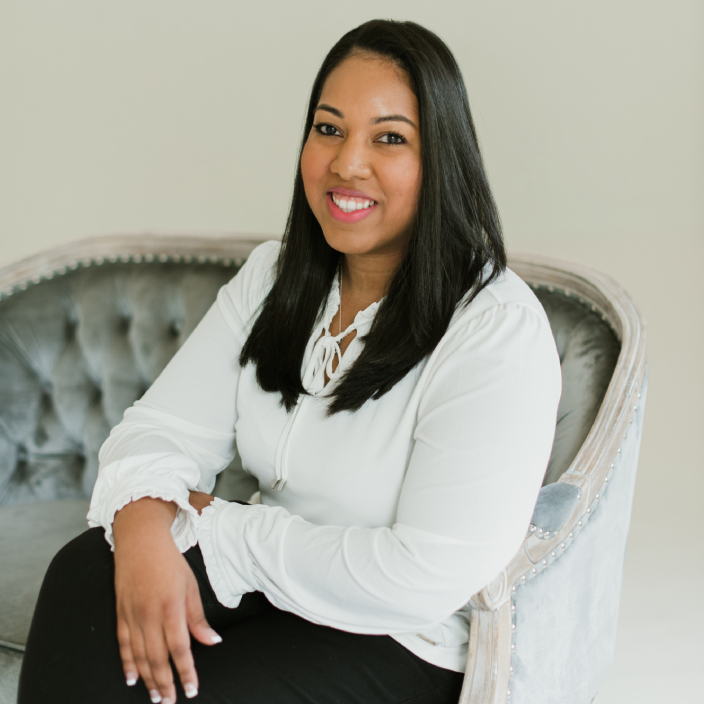Anxiety Therapist in Alpharetta, GA
The best way to find out if this approach is for you is to schedule a 15 minute consultation. Depending on your clinician’s availability, this consult may be held over the phone, via video, or in-person.
Meet Your Anxiety Experts
What is Anxiety?
Everyone experiences anxiety; it’s our body’s natural defense mechanism against stress. Biologically, anxiety is intended to heighten our alertness, preparing us for potential dangers in certain circumstances. However, when anxiety starts cropping up frequently without any real threat, it can adversely affect our physical health, mood, emotional wellbeing, and even our relationships.
The connection between the mind and body is strikingly apparent during anxiety. Fearful thoughts trigger a physiological response (increased heart rate, shallow breathing, dry mouth), which the mind interprets as further proof of something being “wrong.” In essence, anxiety acts as a warning sign, signaling that we might be venturing into an area we’d prefer to avoid.
Rather than aiming to eliminate anxiety completely, our objective is to make it a healthy, manageable part of our daily life. Over a short period of time, though, unchecked anxiety can precipitate panic attacks, particularly when associated with stress or panic disorder.
Symptoms of Anxiety
There are a number of different kinds of anxiety, including generalized anxiety disorder, post-traumatic stress disorder (PTSD), obsessive-compulsive disorder (OCD), social anxiety disorder, separation anxiety, and much more. Our mental health professionals understand that your anxiety is real – it’s not just all in your head – and they will work with you to find solutions.
Anxiety is one of the most common mental health concerns in America. It’s also one of the hardest medical conditions to speak openly about. Every person with anxiety will experience it differently, but there are many symptoms that people may share.
Some of these symptoms include feeling a sense of dread, being too afraid to do things alone or with other people, fear for your physical safety, and even fear for your own life. The most common symptoms of anxiety include:
- Excessive worrying
- Restlessness
- Fatigue
- Difficulty sleeping
- Nightmares
- Panic or fear
- Feeling nervous
- Heart palpitations or racing heart
- Impaired concentration
- Irritability or anger
What to Expect from Anxiety Counseling
Anxiety counseling is a collaborative process, where the therapist and client work together to identify specific concerns and develop concrete skills and techniques for coping with anxiety. Clients can expect to practice their new skills outside of sessions to manage anxiety in situations that might make them uncomfortable. Therapy may be short- or long-term depending on the severity of symptoms. Anxiety is one of the most common mental health concerns in the world.
It can be difficult to talk about for many people, but there are treatments that can help you feel better and live a fulfilling life. For those who have anxiety, it may seem like everything is too much or out of control. Anxiety Counseling helps teach you skills for how to cope with this feeling and understand what triggers your anxiety. You’ll learn more about yourself as well as how to manage your symptoms through therapy sessions and other resources.
Who is Anxiety Therapy for?
KMH provides anxiety counseling services to teens, young adults, and adults. Anxiety therapy is for anyone who feels stressed, uneasy or uncomfortable in their own skin. It’s for those who know they have anxiety and want to take back control of it. It’s for the people who feel like they are living with a constant sense of unease and don’t know where to turn or what to do about it.
If you suffer from anxiety, there is no need to feel alone. Anxiety can strike at any time and for many people, it becomes a way of life that they do not know how to manage. It might seem like your world has been turned upside down and you are all alone in the battle against anxiety but that couldn’t be further from the truth. There are so many resources available for those who have trouble with managing their anxiety and one of these resources is counseling.
Anxiety Therapy Focus Areas
During our therapy sessions we will explore the following areas, and more in order to get you on track for becoming your calmest self:
- What triggers your anxiety?
- How does it feel when you’re struggling with anxiety?
- What are some coping skills that help manage your symptoms?
Can Anxiety Therapy Help You?
Finding a therapist for anxiety can be a critical step in managing these feelings. A licensed therapist, trained in cognitive behavioral therapy (CBT), can provide effective strategies to help cope with feelings of anxiety and panic attacks. CBT, a type of therapy that’s frequently used for treating anxiety, works over the short term to reframe negative thinking patterns and behaviors.
Online therapy is also an option, offering flexibility and convenience. This type of therapy involves regular video or audio sessions with a licensed therapist or social workers, which can be highly effective, especially when in-person sessions are not possible or practical.
Another effective therapy for anxiety is exposure therapy, which entails guided exposure to the situations or thoughts that trigger anxiety, helping the patient to develop better coping strategies.
Social workers and other mental health professionals play a crucial role in managing mental illness like anxiety. They assist individuals in dealing with the challenges anxiety poses in their daily life and guide them in managing symptoms. With the right types of therapy, anxiety can become a manageable aspect of life, rather than a debilitating condition.
Types of Anxiety Disorders We Treat
Our counselors are experienced in treating various types of anxiety disorders, including:
- Generalized Anxiety Disorder (GAD): Chronic anxiety, exaggerated worry, and tension, even when there’s little or nothing to provoke it.
- Social Anxiety Disorder: Intense fear of social or performance situations.
- Panic Disorder: Sudden attacks of terror that can be overwhelming.
- Obsessive-Compulsive Disorder (OCD): Unwanted, recurring thoughts and behaviors.
- Post-Traumatic Stress Disorder (PTSD): Anxiety following traumatic events.
There are many misconceptions about what anxiety is and how it can be treated. The reality is that more people experience symptoms of anxiety than you might think, yet only a small percentage seek help for the issue.
The truth is that there’s no need to suffer through your worries alone! With professional Anxiety Counseling, you’ll learn skills to manage your stress and worry while also building confidence in yourself. You will learn how to identify the triggers for your anxiety, understand why it happens and develop effective coping strategies so that you can feel better now – not just after treatment ends.
 Counseling
Counseling
Individual Counseling Session Rates
Sessions are available in 45 or 60-minute formats and can be conducted either in person or via video.
Initially, appointments are typically scheduled every week or every other week, but once symptoms are managed and progress towards goals becomes more consistent, they can be spaced out to every 3-4 weeks.
45 minute appointments: $160 – $180 per session
60 minute appointments: $215 – $240 per session
Individual counseling rate varies per clinician. Please see clinician bios for more information regarding specialties and rates.
Frequently Asked Questions
How do I schedule an appointment?
If you are a new client, you may schedule your consultation or your initial appointment by visiting the contact page and filling out the short form or by calling (470) 231-5355 and speaking directly to our client care coordinator.
All outreaches are returned within 24 hours, during business hours.
Do you accept my insurance?
KMH does not accept insurance. Managed care companies were created to “manage” and contain escalating health care costs. Their bottom line is to reduce costs and raise profits; it is not to increase the quality of care professionals provide or your quality of life. KMH is solution-focused on quality of life and personal goals.
What is your cancellation policy?
If you need to cancel or change your appointment, we ask you to inform your provider at least 24 hours in advance of your scheduled session start time. Your full session fee will be charged for missed appointments and cancellations received less than 24 hours in advance.
What forms of payment do you accept?
Cash, credit cards, and health savings (HSA) or flex spending account (FSA) cards that have a major credit card logo on it are all accepted forms of payment.

